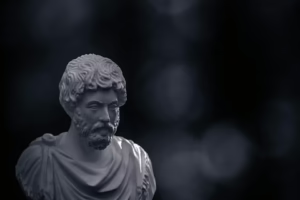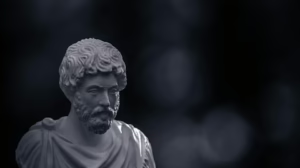Modern Interpretations: Essential Philosophy Books for Today’s World
Philosophy, often seen as an abstract or esoteric discipline, has an enduring relevance that continues to shape contemporary thought and action. As we navigate the complexities of the 21st century, philosophy offers essential insights into our existence, ethics, societies, and the very nature of knowledge. In this article, we will explore several philosophy books that have modern interpretations and relevance today, focusing on themes of justice, ethics, identity, and the human experience.
1. “Justice: What’s the Right Thing to Do?” by Michael Sandel
Michael Sandel’s “Justice: What’s the Right Thing to Do?” stands as an accessible introduction to contemporary moral philosophy. Utilizing everyday dilemmas and scenarios, Sandel invites readers to engage with complex ethical questions. He explores various frameworks for considering justice, such as utilitarianism, Kantian ethics, and virtue ethics, allowing readers to see the practical applications of philosophical thought in real-world situations. Sandel’s approach encourages civic engagement and critical thinking about morality, making his work particularly relevant in a time when social justice issues dominate public discourse[^1].
Key Takeaways
- The Importance of Civic Engagement: Sandel argues for the necessity of public discourse in making moral decisions and considering what constitutes just action.
- Practical Ethics: His use of case studies, from the trolley problem to discussions of affirmative action, exemplifies how philosophy can provide clarity in complex moral dilemmas.
2. “The Ethics of Ambiguity” by Simone de Beauvoir
Simone de Beauvoir’s “The Ethics of Ambiguity” has become increasingly pertinent in discussions surrounding existentialism and feminism. In this work, de Beauvoir argues for the acknowledgment of human freedom and the ambiguity that comes with it. She explores the implications of freedom for ethical living and interpersonal relationships. In contemporary discussions about identity, autonomy, and the struggles of marginalized groups, de Beauvoir’s emphasis on the fluidity of existence provides a rich framework for understanding the complexities of modern life[^2].
Key Takeaways
- Freedom and Responsibility: De Beauvoir emphasizes that with freedom comes the responsibility to others, highlighting the interconnectedness of human actions and ethical implications.
- Existentialism in Action: Her focus on ambiguity speaks to the uncertainties faced by individuals today, particularly in navigating identity within various social constructs.
3. “The Structure of Scientific Revolutions” by Thomas S. Kuhn
In “The Structure of Scientific Revolutions,” Thomas Kuhn examines how scientific paradigms shift over time, challenging the traditional view of scientific progress as a linear accumulation of knowledge. His concepts of “paradigm shifts” and “normal science” have ramifications not just in scientific discourse but also in understanding cultural and social evolutions today. In a world where misinformation and differing perspectives are prevalent, Kuhn’s insights remind us that the interpretation of facts is often influenced by the prevailing paradigms of thought[^3].
Key Takeaways
- The Role of Paradigms: Kuhn’s work highlights the subjective nature of scientific inquiry, emphasizing that what is considered “truth” can be context-dependent.
- Cultural Interpretations: His model serves as a reminder of the importance of questioning established norms, which is particularly relevant in today’s rapidly changing societal landscape.
4. “Why We Can’t Wait” by Martin Luther King Jr.
Martin Luther King Jr.’s “Why We Can’t Wait” is not just a historical text; it offers timeless insights into the ongoing struggles for justice and equality. Written during the Civil Rights Movement, King’s work articulates a philosophy of nonviolent resistance and moral urgency. Today, as movements like Black Lives Matter and other social justice initiatives gain momentum, King’s reflections on patience, justice, and moral action resonate strongly, encouraging readers to engage in activism and advocate for systemic change[^4].
Key Takeaways
- Moral Urgency: King emphasizes that justice delayed is justice denied, a concept that continues to inspire movements advocating for equality.
- Nonviolent Resistance: His philosophical stance on nonviolence as a potent form of activism serves as a model for contemporary social justice advocates.
5. “Ethics in the Real World: 86 Brief Essays on Things That Matter” by Peter Singer
Peter Singer’s work epitomizes the relevance of ethical inquiry in everyday life. In “Ethics in the Real World,” he presents a collection of essays addressing pressing ethical issues, such as animal rights, global poverty, and climate change. Singer, a utilitarian philosopher, challenges readers to consider their role in these issues and the moral implications of their choices. His work is particularly significant in an era where individual actions can have global ramifications, urging readers to adopt a more ethical lifestyle[^5].
Key Takeaways
- Practical Ethics: Singer’s essays illustrate how philosophical thought can guide everyday decisions, from consumer choices to philanthropic efforts.
- Global Responsibility: His emphasis on the interconnectedness of individuals across the globe highlights the moral obligations we have toward one another and the planet.
6. “The Second Sex” by Simone de Beauvoir
Another of Simone de Beauvoir’s masterpieces, “The Second Sex,” is a foundational text in feminist philosophy. This comprehensive analysis of women’s oppression and the construction of gender continues to inspire feminist movements worldwide. De Beauvoir’s assertion that “One is not born, but rather becomes, a woman” underscores the social construction of identity, challenging readers to interrogate gender norms in contemporary society[^6].
Key Takeaways
- Social Construction of Gender: Her exploration of how gender identity is formed challenges patriarchal norms and encourages deep reflection on gender roles today.
- Feminist Philosophy: The analysis of women’s lived experiences is crucial for understanding current gender dynamics and inequalities.
7. “On Tyranny: Twenty Lessons from the Twentieth Century” by Timothy Snyder
Timothy Snyder’s “On Tyranny” delivers stark lessons drawn from history, elucidating the dynamics of totalitarianism and the importance of democratic engagement. Snyder warns against complacency and the gradual erosion of democracy, urging readers to take proactive measures to safeguard their freedoms. In a time where democracy appears under threat in various parts of the world, Snyder’s work serves as a call to action for individuals to engage in civil society[^7].
Key Takeaways
- Historical Lessons: Snyder’s lessons from the past emphasize the need for vigilance and action in preserving democratic values.
- Civic Responsibility: His work reinforces the idea that active participation in governance is crucial for maintaining freedom and resisting tyranny.
8. “The Power of Now” by Eckhart Tolle
Eckhart Tolle’s influential book, “The Power of Now,” presents a philosophical exploration of mindfulness and the significance of living in the present moment. Drawing on various philosophical and spiritual traditions, Tolle encourages readers to transcend their ego and find peace through presence. In an age characterized by anxiety and distraction, Tolle’s message of mindfulness and self-awareness is especially relevant[^8].
Key Takeaways
- Mindfulness and Presence: Tolle’s insights promote a shift in focus from the past and future to the present, providing a pathway to emotional well-being.
- Ego and Identity: His analysis of the ego reflects on the broader discussions of self and identity prevalent in contemporary philosophy.
Conclusion
These eight essential philosophy books resonate deeply with the challenges and realities of today’s world. They invite us to engage with ethical dilemmas, social injustices, and the very nature of existence. Each author, through their unique lens, compels readers to think critically, question societal norms, and strive for a more just and meaningful life. Whether through the lens of justice, ethics, feminism, or mindfulness, philosophy remains a vital tool for understanding and engaging with the world around us.
As we continue to confront global challenges and personal dilemmas, these texts provide a compass for navigating the complexities of modern life. Embracing the wisdom of these modern interpretations can empower individuals to not only contemplate their beliefs but also take action in creating a more equitable and thoughtful society.


























Add Comment